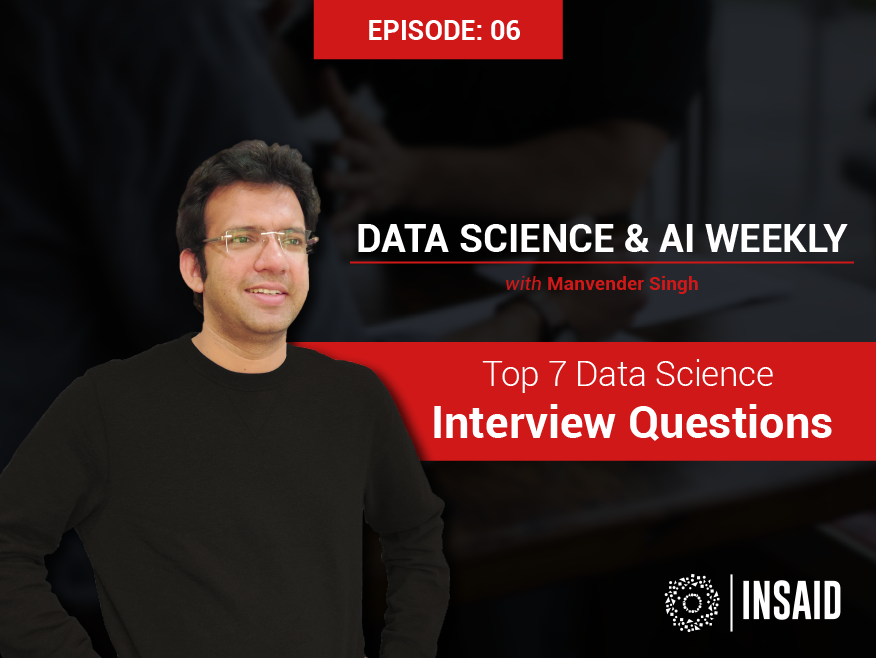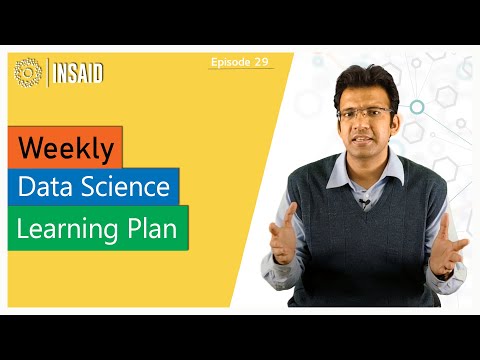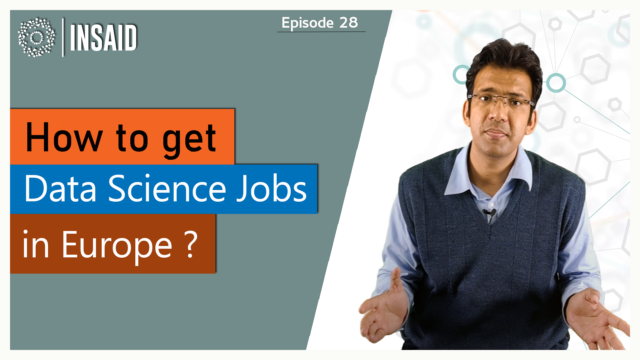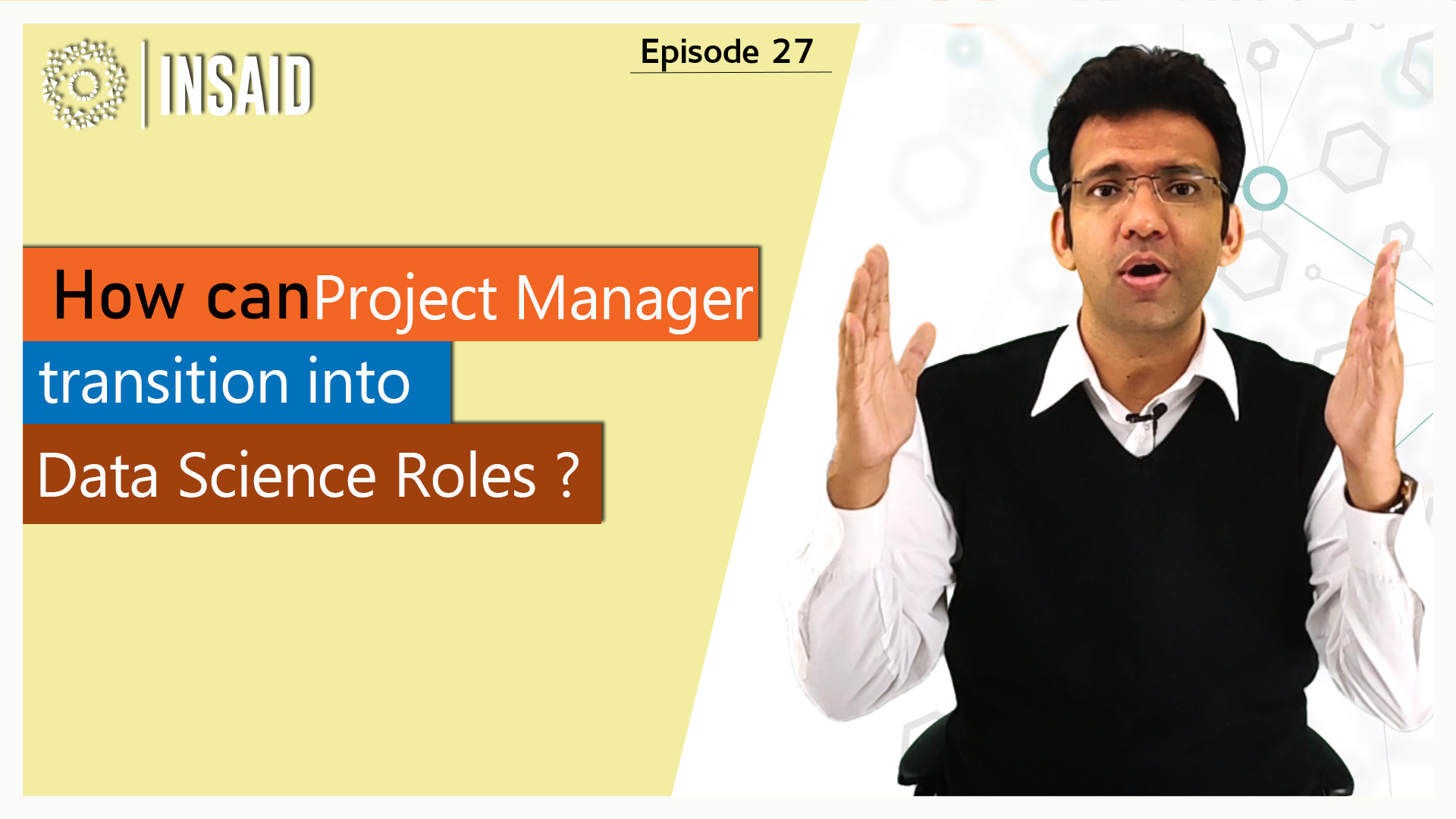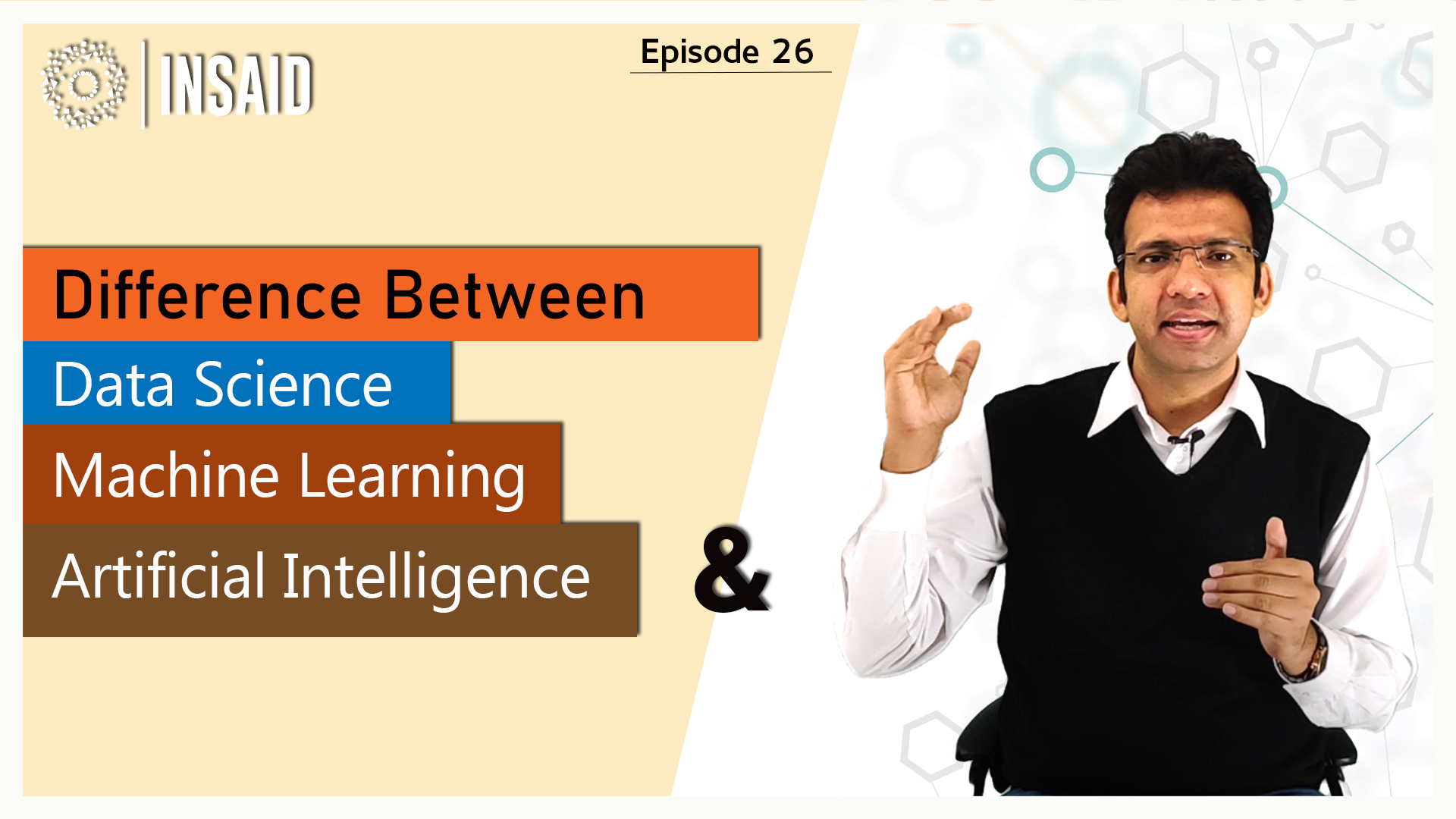This is Episode #6 of Data Science and AI Weekly! In this episode, we will discuss the Top 7 Interview Questions that you are most likely to be asked in your Data Science interview. The podcast is hosted by Manav, Chief Data Science Mentor at International School of AI and Data Science.
TIME-STAMPED SHOW NOTES:
[00:10] Podcast Series Introduction
[00:47] Topic of Discussion: Top 7 Data Science Interview Questions
[01:27] Question #1: Data Science Projects
[02:03] Question #2: Data Science Trends
[02:52] Question #3: Most used ML Algorithm
[04:07] Question #4: Data Science select questions
[05:00] Question #5: Data Science role fitment
[06:05] Question #6: Your understanding of Data Science roles
[07:32] Question #7: Resume related questions
[08:37] Wrap Up!
[09:14] Learn more about Data Science at www.insaid.co
Welcome to Episode 6 of Data Science & AI Weekly!
Hi, everyone. My name is Manav & I’m the Chief Data Science mentor at INSAID. This is a series of podcasts in which I talk about everything ranging from Data Science and AI and trends, career options, opportunities and how to essentially get started in these exciting areas.
So we have another exciting topic for today’s podcast. But before that, let me just give you a quick brief if you have not listened to the first few episodes, ensure that you have done that and make sure that you subscribe to the channel so that you’re constantly receiving notifications about the next few podcasts that will get uploaded.
So let’s move now to this episode, which is Episode 6. And in this episode, we’re going to discuss about Top 7 Data Science Interview Questions that you need to be prepared for.
Right so now why Top 7?
I could have made it Top 10 as well but it would have become a little long. So what I thought is that one of the questions that I get asked very often is that Manav, what are some of the top interview questions I should prepare for when I’m going for Data Science interview?
So let me share some of these interview questions one at a time. And these are interview questions that you would see not in 50, not in 60, 70, but mostly 99% or 90% of the interviews. So let’s start with these questions. The first question that you are likely to see in any Data Science interview is you will be asked questions about your project, some of the projects that you would have undertaken so far or executed so far.
So you’d be asked questions, for example, which was your most challenging Data Science project that you have worked on so far? Right? And you’d be asked to describe the problem statement, what are the challenges, you know, the kind of results that you delivered, etc. So, that’s a question that you are likely to see in every Data Science interview. And this is the most challenging to Data Science interview question.
Question number 2, you’d be asked question on the trends that you are excited about, or you’re following in the world of Data Science. So most of the interviewers want to know, why are you in Data Science and what kind of stuff you read in Data Science, because this is not a stagnant field where the technology is defined & where everything is fixed.
Today, you might be working on Python, tomorrow- your company might expect you to work on TensorFlow as well. So they want to know how fast a learner are you and they get an indication of that when they are trying to assess you through some of the trends that you follow, right?
So be prepared for a question like this.
You might not see this in every interview, but something that I highly recommend you is to get prepared for question number three, you would definitely be asked a question like Tell us about your favorite Machine Learning algorithm or Tell us an algorithm that you are the strongest in?
And this is personally my favorite question because one of the ways I judge a candidate is that a lot of candidates, right with tens of Machine Learning algorithms’ names in their resumes, right and I know that most likely they’re not the best in everyone. So I want to know what you are best in. And interviewers want to know if you’re saying that you are the best in a particular Machine Learning algorithm, how deeply you know that Machine Learning algorithm, so, be prepared for choosing one Machine Learning algorithm.
Let’s say that you choose linear regression, but if you have chosen linear regression, you need to ensure that you are going deep into linear regression and be prepared to have possibly the entire interview in itself centered around linear regression. I’ve seen instances wherein the entire 45-Minutes interview was about linear regression itself so the interview can go that deep. So you need to ensure that you are sufficiently prepared for going deep in a particular Machine Learning algorithm. Right. So this was question number three.
Now let’s take another question, which you’ll likely see is question number 4. You might be asked theoretical questions about Data Science. For example, you might be asked some basic questions, the difference between supervised algorithms and unsupervised algorithms now, those might sound like very basic questions but trust me, sometimes candidates get confused even in those questions, right.
So you need to be prepared for answering questions like that as well. So you need to be really strong with some of these basic definitions, algorithms that you have written in your resume. You need to that’s why before coming for the interview, you need to go through everything that you have written in your resume and be prepared for facing any questions from there. Yeah. So this is question number.
For question number 5, question number 5 would be focused on what value do you think you bring to the table? To the role that you have applied for, right? For example, you were applying for a Data Science role at let’s say, JPMorgan, or let’s say Novartis or let’s say Vodafone or Microsoft, right? So you need to be clear about the kind of work that particular company is doing in Data Science. And why would you, how would you add value to it because you don’t want to just be seen that someone is looking for you or you’re looking for a job in Data Science & that’s why you apply to multiple companies.
And that’s why you are here interviewing for the role. So you want to show that there is some logic between what you’re looking to do and what your passions are and what you have done. So you need to draw that bridge. If you’re drawing that bridge, trust me, your life would become much, much simpler and your answers of getting selected are going to be even better. Right? Question number six would be about your understanding of what Data Scientists would do on a day-to-day basis. Right? So you might be asked questions about what are your favorite parts about the about being a Data Scientist? What are your not so good parts about being a Data Scientist? So what essentially the company is trying to do is that an organization would or a recruiter would be possibly looking for some focus areas wherein to fill or key areas, key skills to fill in, in its team.
And they would want to assess whether you have those key skills or not. So be as honest as possible. Don’t boast too many things. Don’t brag about things that you can’t justify. So be sure that whatever you’re speaking represents your truth/ skill set. So you might be asked, for example, which one do you enjoy more? Do you do data cleaning more? Or do you like client interaction more? Right? So if you say that I like client interaction more, but you actually have not done a lot of client interaction so you would not want to say that I like data cleaning more if that’s what you think that your strength is.
So there’s nothing called good Data Science, bad Data Science say what you have actually done. And last question. And Question number 7 of top interview questions that you need to be prepared for is to be asked questions related to, let’s say that you have put your resume Python so you should be ready to answer questions related to Python. It can be any kind of question depending on what you have written.
If you, for example, said that you are an expert in Python, you should be ready for expert-level questions in Python. If you have written you like R also in resume, you might get a question on R and that’s why what I’d recommend is to ensure that you’re not getting bold in that question.
What you need to ensure is in your resume, if you can mention your expertise level in that particular tool, right, that could certainly give an indication to the interviewer of what is your proficiency level, for example, if I see a candidate has written R in his resume but they have written, let’s say, beginner level, so I’m not going to quiz that candidate on expert level proficiency questions in the interview.
So those are the 7 interview questions. I’m sure some of these things you would have forgotten by now so what I’d recommend is going through the podcast all over again, listing down all of these questions in your notebook and saving it for future because if you’re doing these preparing for these 7 interview questions, well, trust me you would be prepared significantly for the kind of interview questions that you are likely to see in a Data Science interview, right?
So, those are my Top questions for Data Science interviews. If you think that I missed any questions, feel free to type in the comment section. I hope you loved this video, my attempt through this podcast series is to ensure that you have the most realistic idea about what the entire field of Data Science is like.
Feel free to share your feedback, feel free to share your comment in the chat section/ in the comment section as well. And if you want to hear or if you want us to make a video on any particular topic that you would like, just let us know and we would be there with a video on a topic that you would want us to talk about. Thank you very much for tuning into this podcast. My name is Manav and I’m signing off from this podcast right now. Thank you!

